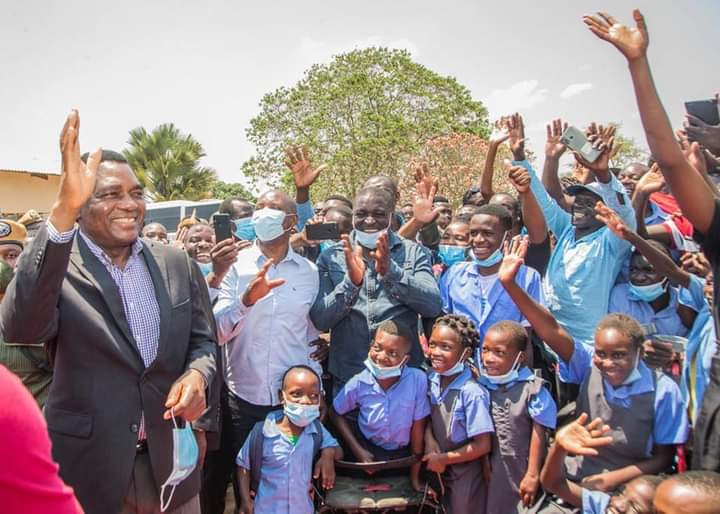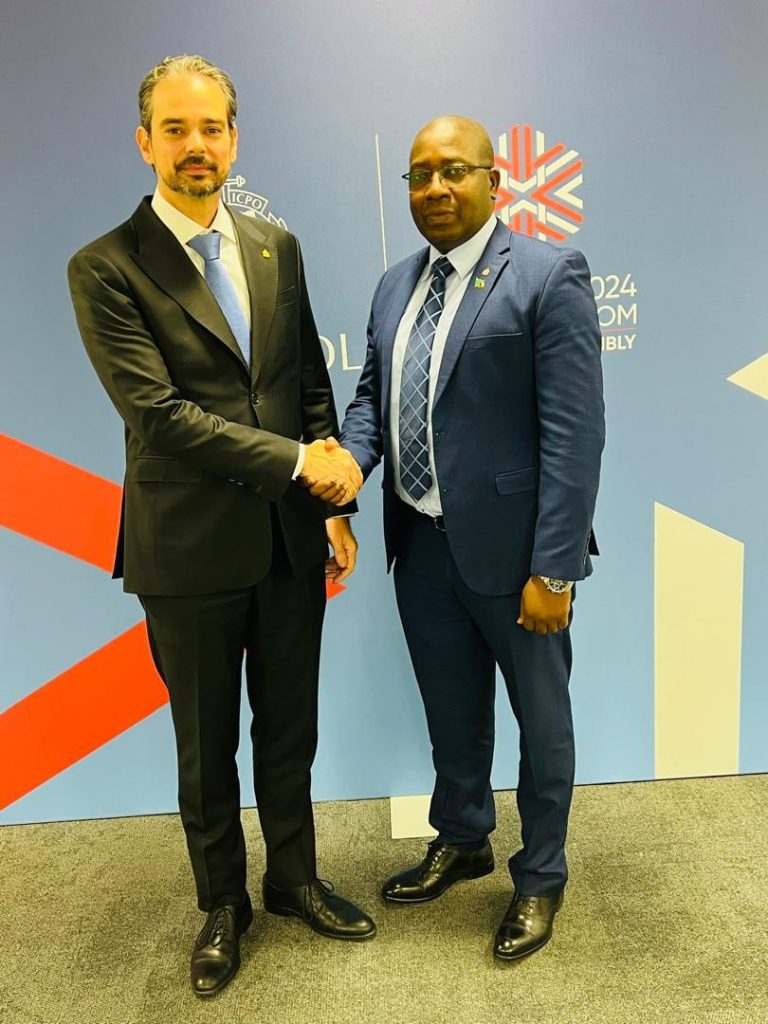
By fostering joint ownership between the government and various stakeholders, we can build a sustainable quality-driven education system and secure a brighter future for the nation’s children.
By Hon. Ponde C. Mecha
Lusaka, Nov. 05 – In a recent interview with a BBC reporter, Zambia’s Minister of Education, Douglas Syakalima, reiterated the government’s commitment to ensuring that every child has access to education – even if it means addressing the challenge of overcrowded classrooms due to the free education policy. This policy comes in response to the widespread issue highlighted by a UNICEF report, which shows that 9 out of 10 children in Sub-Saharan Africa struggle to read.
Also Read: Boosting Rural Resilience: How NHIMA, FISP, and Cash-for-Work Can Secure Zambia’s Food Future. By adapting the cash-for-work program to benefit rural farmers, and improving the efficiency of NHIMA and FISP through targeted reforms, Zambia can create a more resilient and sustainable food system.
Despite economic challenges, including a debt default, Zambia has invested heavily in free education since 2021, determined to offer children better opportunities and reduce the number of street children. The success of Zambia’s free education policy, however, cannot rest solely on the shoulders of the government. It requires joint ownership from all stakeholders – communities, NGOs, cooperating partners, and the private sector. Ensuring quality education for the Zambian child is a shared responsibility, one that will transform the future of the nation.
As a former Member of Parliament for Chifunabuli Constituency in Luapula Province and a member of the Portfolio Committee responsible for Education, Science, and Technology from 2016 to 2021, I am excited to witness the increase in school enrollment in my former constituency. The rise in numbers proves that the free education policy is making an impact, providing children with the opportunity to attend school who otherwise may have been left behind. But this is only the starting point.
◾Joint Responsibility for Quality Education: For Zambia to deliver quality education for all, every stakeholder must play their part in supporting and strengthening the free education policy:
▪️ – Government: The Ministry of Education has made great strides in expanding access to education, but challenges such as overcrowded classrooms and teacher shortages remain. The recent increase in Constituency Development Fund (CDF) allocations in the 2025 national budget offers a crucial opportunity for communities to take ownership by developing infrastructure projects, such as expanding schools, procuring more desks, and improving learning environments.
▪️ – Communities: Ward Development Committees and community leaders must work together to propose and prioritize projects aimed at enhancing the learning environment. Using the increased CDF for classroom expansions, school refurbishments, and teacher support will significantly improve the quality of education in local areas like Chifunabuli and beyond.
▪️ – NGOs and Cooperating Partners: There is also a need for NGOs and cooperating partners to work closely with the Ministry of Community Development and Social Services to run rehabilitation and reintegration programs for street children. This partnership will ensure that children who are still begging on the streets are brought back into the education system sustainably.
▪️ – Private Sector: Private companies have an important role in providing resources for teacher training, infrastructure development, and technological tools that can supplement classroom learning. Collaboration with the private sector can help improve education outcomes and reduce overcrowding.
◾Supporting Vulnerable Children through Social Protection: While the free education policy has increased enrollment, addressing the needs of vulnerable children, particularly street children, remains critical. Strengthening social protection programs like cash transfers for low-income families will help ensure that children are not forced to leave school due to financial difficulties.
Consequently, the Ministry of Community Development and Social Services, alongside NGOs and private partners, should continue to build on existing rehabilitation programs to bring street children back to school and provide them with the support they need to thrive.
◾A Call to Action for Parents and Guardians: Parents and guardians play a vital role in supporting the success of this policy. I urge you to fully embrace the free education initiative and actively participate in school activities through parent-teacher committees and community forums. Your involvement is key to ensuring that your children benefit from both the accessibility and quality that this policy strives to deliver.
◾A Shared Vision for Zambia’s Future: The free education policy is more than a government initiative; it is a vision for the future of Zambia’s children. By fostering joint ownership between the government and stakeholders, including NGOs, the private sector, and community members, we can build a sustainable, quality-driven education system.
Also Read: Turning Political Boundaries into Bridges: Dr. Chilufya’s Golden Opportunity for Mansa Central Following Dr. Chilufya’s statement, Hon. Mecha paints a vision of a Zambia where leaders unite, ideas are shared, and every corner of the country benefits from these alliances.
The work ahead is immense, but by sharing responsibility and pooling resources, Zambia can deliver education for all and ensure no child is left behind. Let us seize this opportunity to continue investing in education. Together, we can make the free education policy a model of success – one that provides every child in Zambia, including those in Chifunabuli and other rural areas, with the chance to reach their full potential.
About The Author: Hon. Ponde Chunga Mecha is the immediate past MP for Chifunabuli Constituency. He has worked and executed various development programmes in the agriculture sector under various funding sources including GRZ, World Bank, NORAD, FINNIDA, FAO, Melinda and Bill Gates Foundation, USAID and the EU.
About Our Advocacy: Woodpecker’s Digest provides in-depth analyses and commentary on issues of national importance, alongside articles on personal development and health. We believe journalism can be a force for socio-economic change.
©2024 Woodpecker’s Digest.
Putting news into perspective







